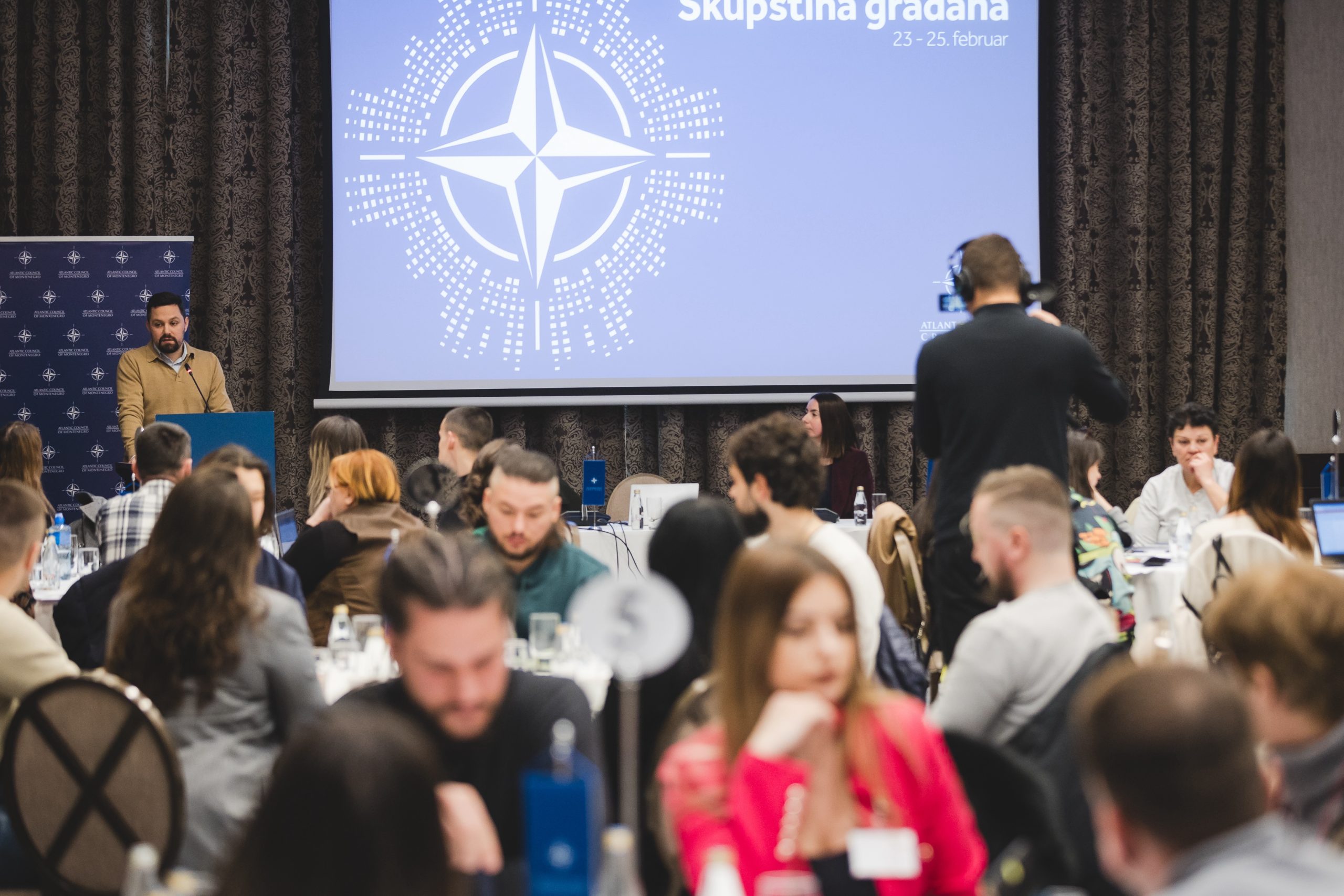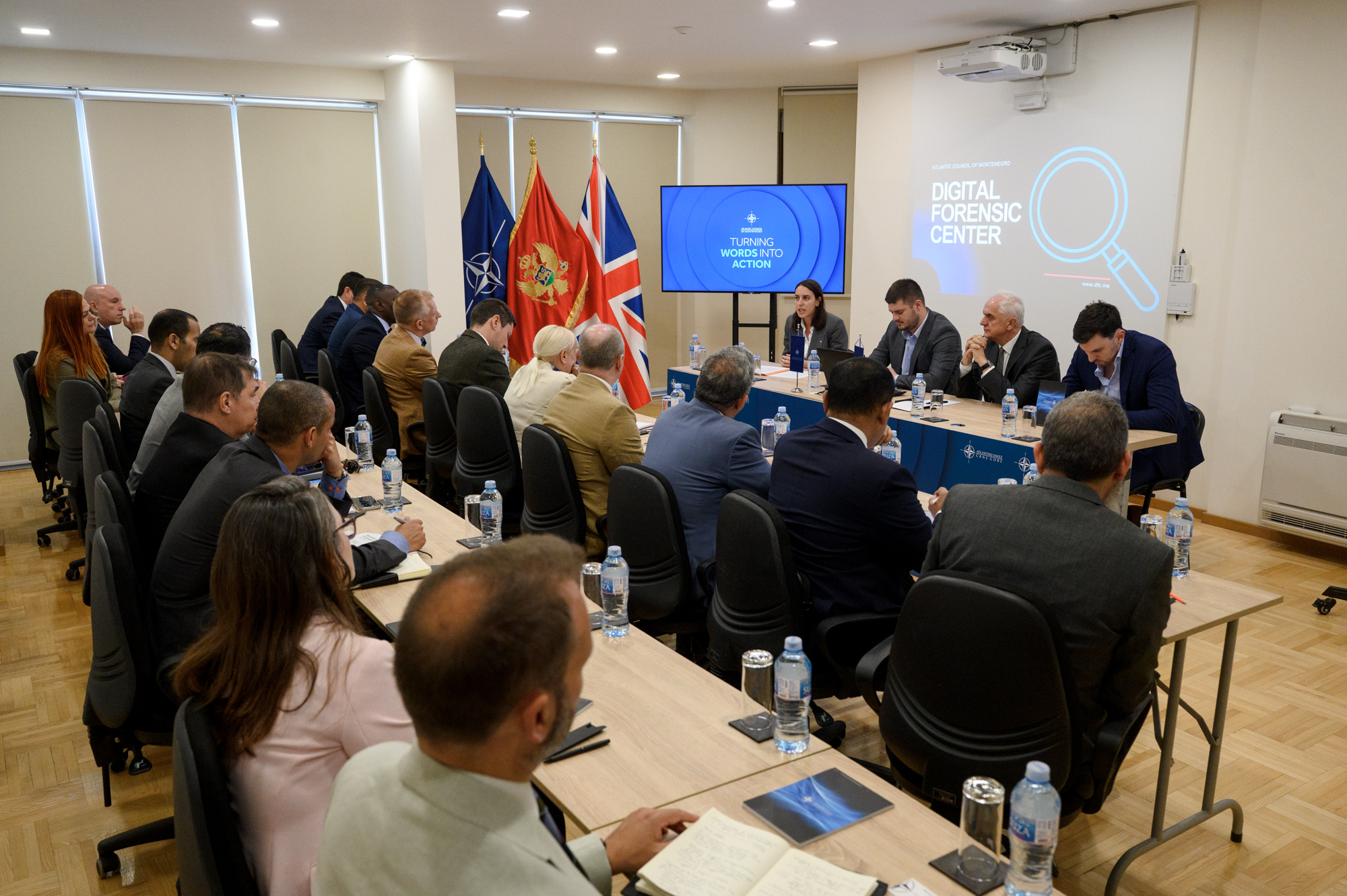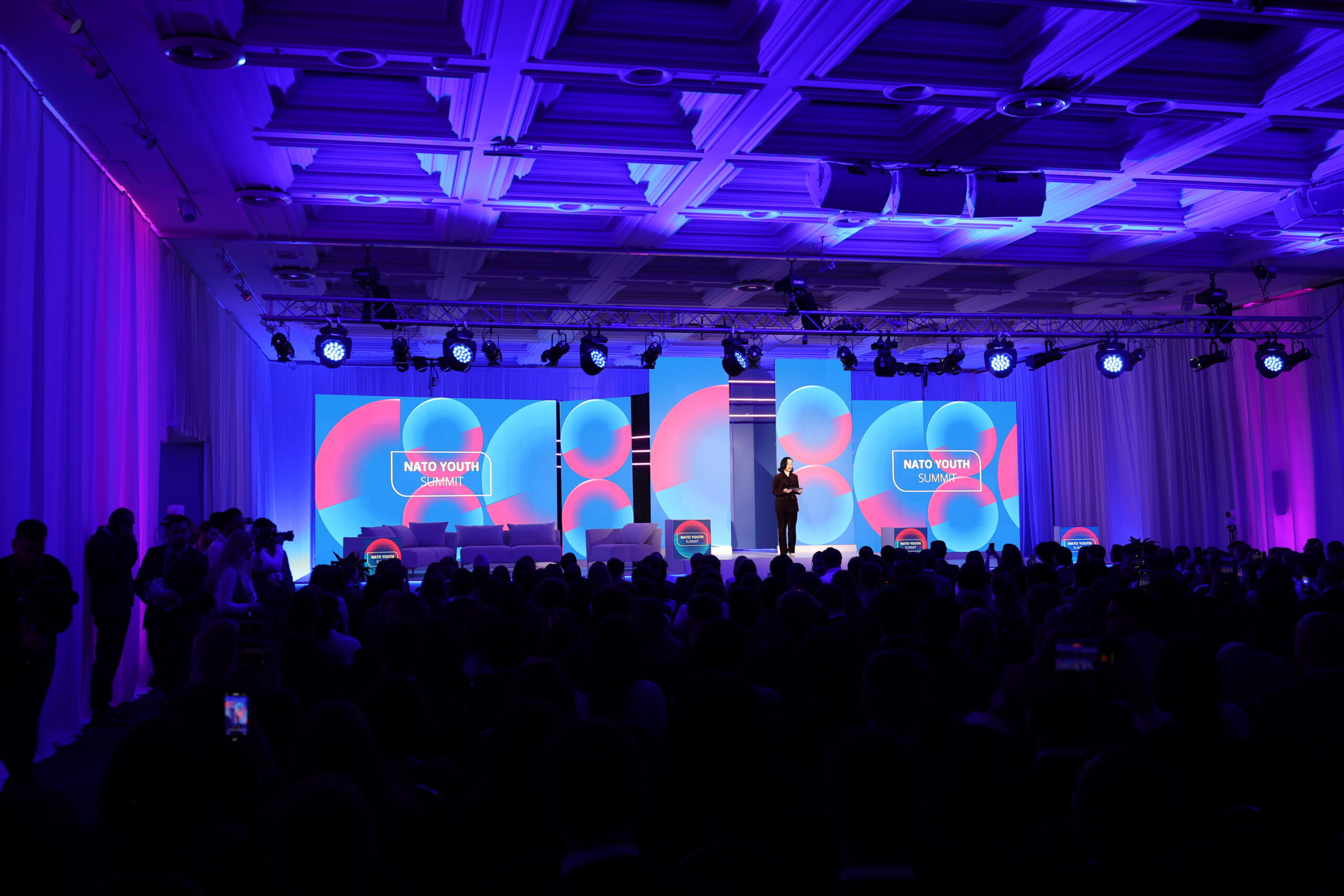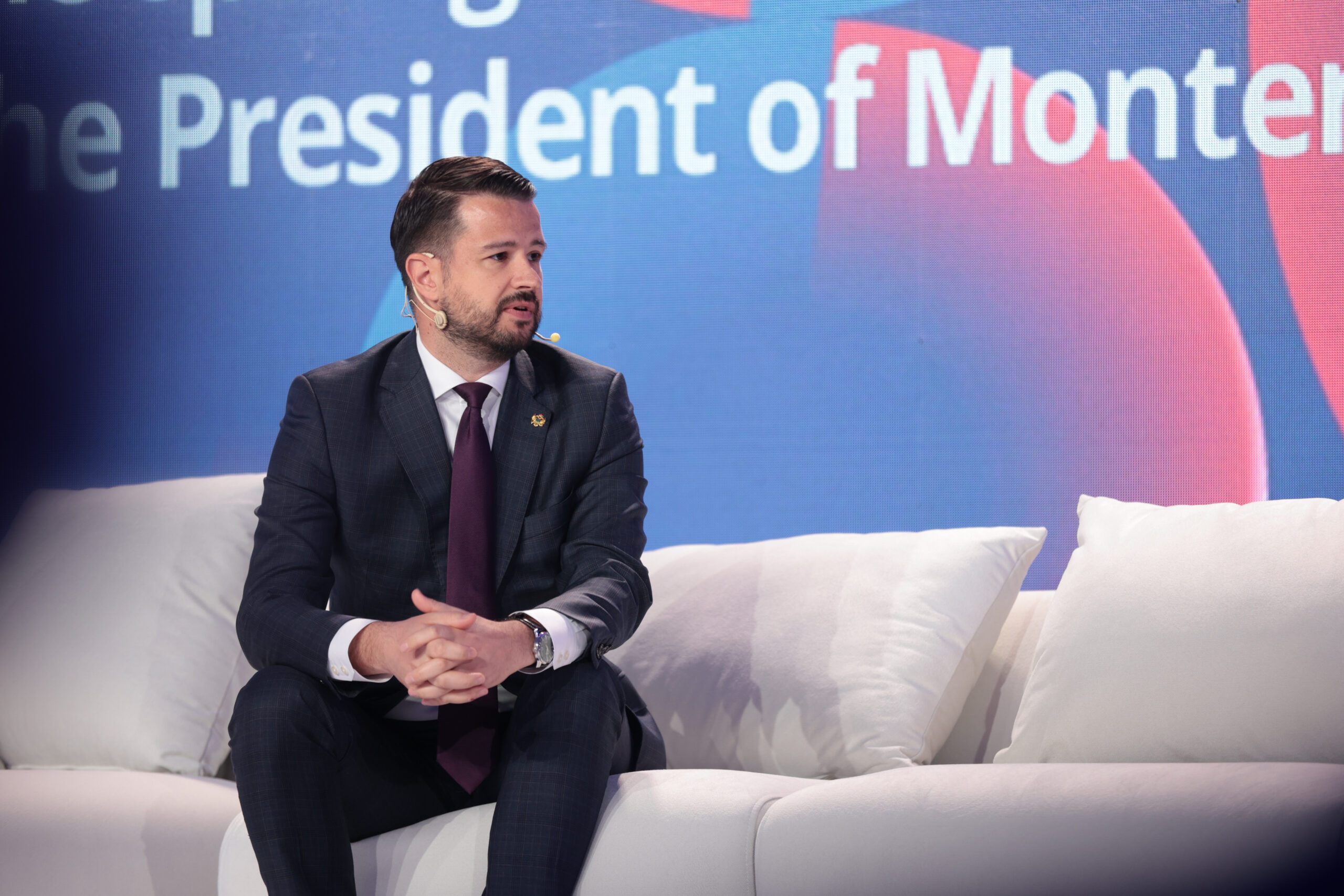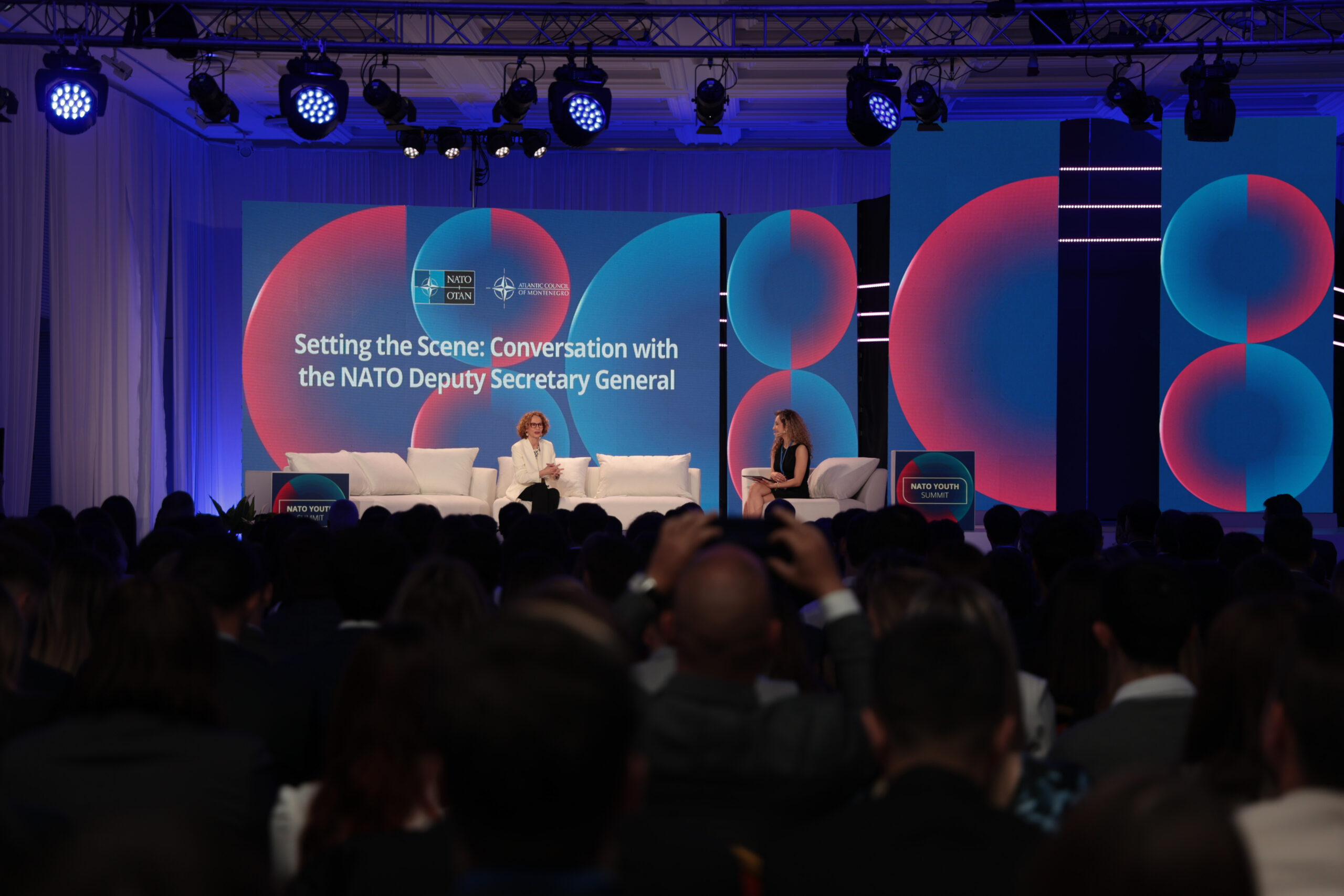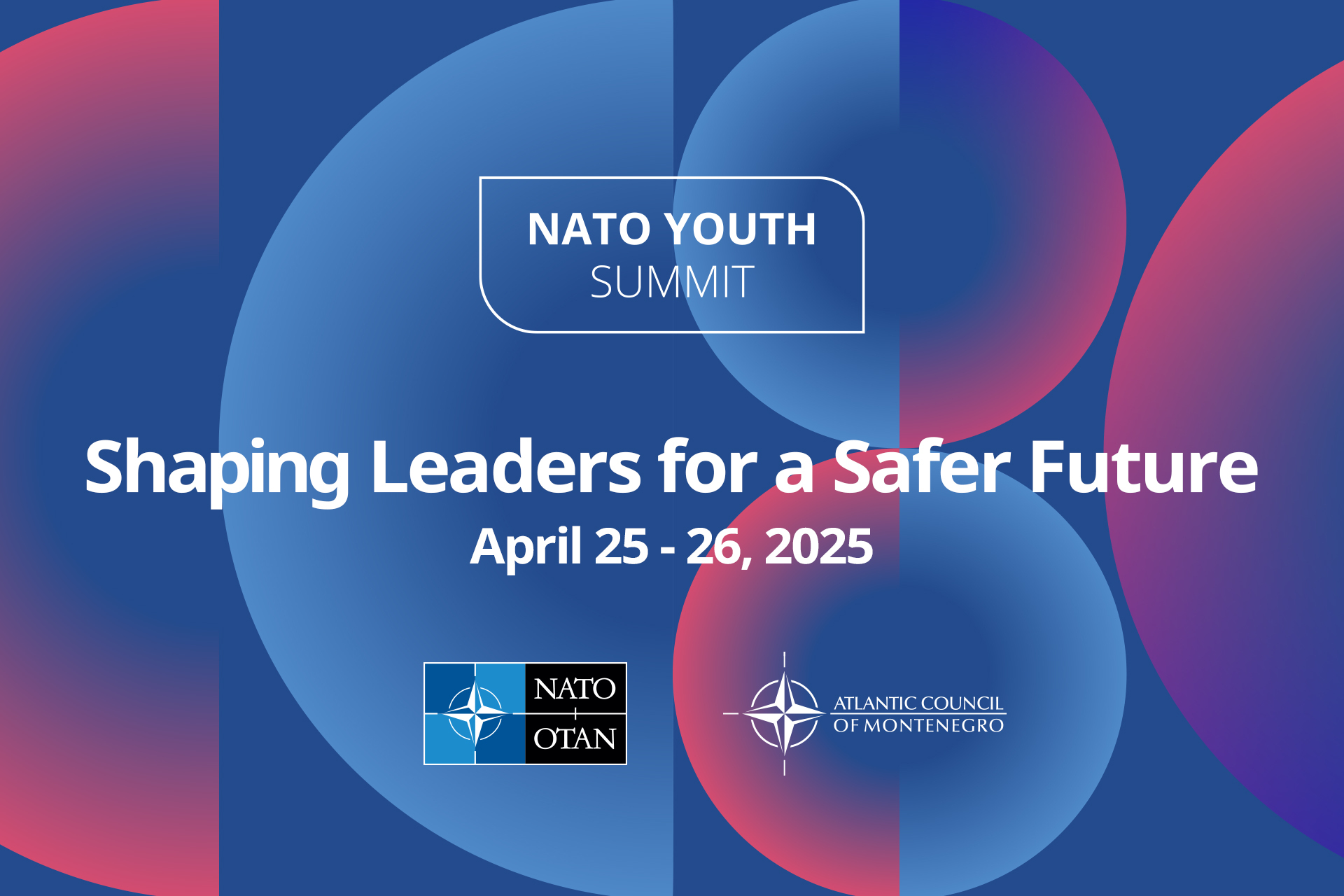In order for citizens to be involved in the decision-making process, it is necessary to establish citizen assemblies as permanent bodies within local self-governments. Furthermore, the issue of foreign influence needs to be addressed systematically, by establishing a parliamentary committee tasked with aligning Montenegro’s legislation in this field with European standards. In order for citizens to have tools to combat disinformation, a systematic response in this regard should begin with the introduction of media literacy as a mandatory subject in elementary and high schools.
These recommendations on the topics of participatory democracy, foreign information manipulation and interference, and media policy were formulated and adopted by citizens at the first citizens’ assembly organized by the Atlantic Council of Montenegro, held over the weekend in Podgorica.
The project involved 50 citizens from all over Montenegro, previously selected based on a representative sample to best represent the population of Montenegro, with discussions facilitated by 10 moderators.
“Our first citizens’ assembly has shown the necessity of considering the institutionalization of this mechanism, which contributes to bridging the gap between citizens and political elites in addressing some of the key societal issues. Given that MPs of the Montenegrin parliament participated in the proceedings of this Assembly, we hope they will be receptive to maintaining a constructive dialogue that will aid in normalizing citizen participation in the decision-making process,” said Azra Karastanović, executive director of the Atlantic Council of Montenegro.
The first topic discussed was participatory democracy. After a lecture by Professor Dr. Olivera Komar (Faculty of Political Science of the University of Montenegro), citizens continued with the formulation of recommendations. One of the recommendations concerns the institutionalization of citizen assemblies at the local level, as a permanent body within local self-governments. The representatives of citizens emphasize that this body would have at its disposal a certain percentage of the municipal budget allocated exclusively for projects proposed by citizens. In a later stage, such a model would be implemented at the state level, with citizens drawing inspiration from the example of Belgium in developing this recommendation.
Regarding media policies, participants had the opportunity to gain firsthand knowledge from Olivera Nikolić (Montenegro Media Institute), and the proposal for improving media policies and media literacy was directed towards introducing media literacy as a mandatory subject in elementary and high schools, aiming to systematically address the issue of misinformation spread and information manipulation. In their opinion, the ultimate goal should be the cultivation of generations capable of resisting the negative influence of media, understanding and utilizing new technologies and online tools to form opinions based on information from relevant sources.
In addition, education reform should include the introduction of civic education as a mandatory subject in elementary and high schools, aiming to raise the level of awareness and education on topics related to citizens’ rights and obligations, civic activism, democracy, and the functioning of the system.
When it comes to foreign influence and misinformation, citizens emphasize the importance of addressing the challenges of hybrid threats and foreign influence through a specific legal framework. They convey that this legal framework should be aligned with EU legislation, and the initiation of a systematic response to these issues would involve establishing a special parliamentary committee.
On the final day of the Assembly, citizens exchanged views on the recommendations they had worked on during the previous two days with MPs from five parliamentary clubs of the Parliament of Montenegro. The discussions on these topics with citizens were held with Oskar Huter (DPS), Boris Mugoša (SD), Damir Gutić (BP), Vasilije Čarapić (ENM), and Duško Stjepović (Democrats).
The citizens’ assembly project of the Atlantic Council of Montenegro was implemented with the support of the European Union.



